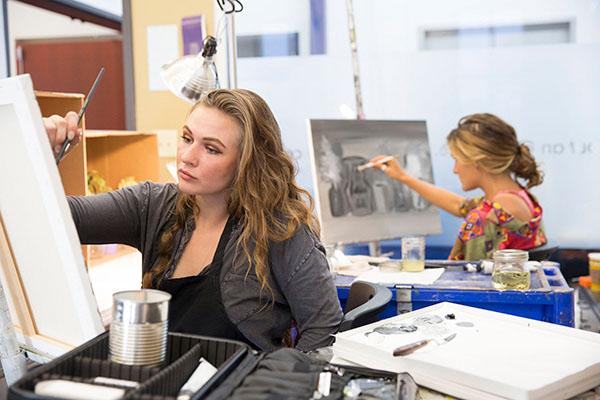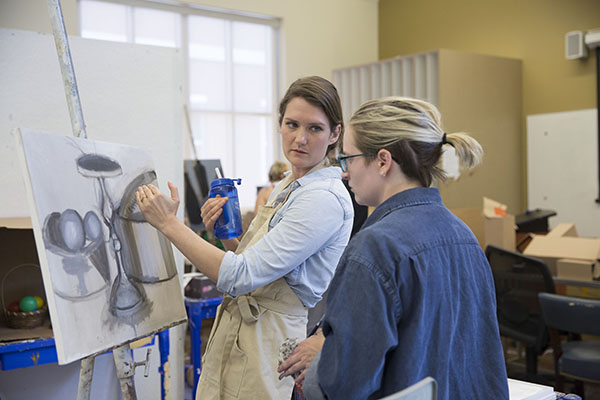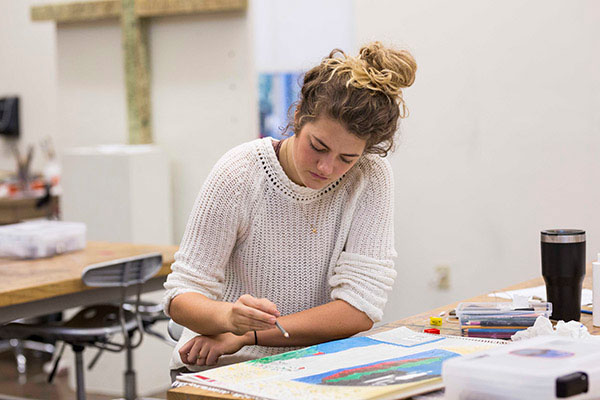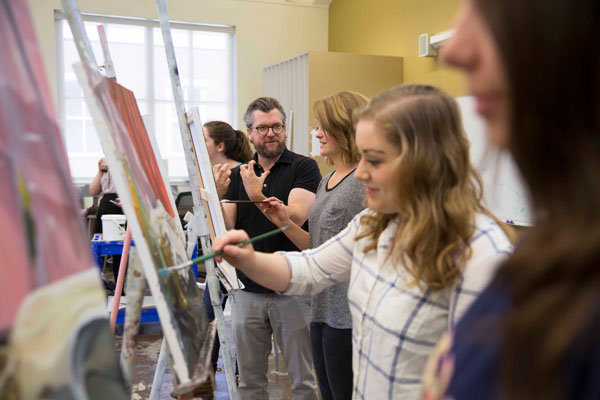Program Overview
Through the study of art therapy, your talents in the visual arts and your compassion for others will go hand in hand. Explore multiple ways to bring about healing and help many reach their full potential through art.
Our small class sizes will bring you in-depth, hands-on insight into the field of art therapy. Our professional faculty will guide you through real-time events and social situations. You will have the opportunity to interact with individuals in guided settings to experience the power of co-creating within an art therapy context. Whether you wish to use your garnered knowledge for education, medicine, geriatrics, private practice or graduate school, you will be well-equipped for the field.
All students wishing to study in the Department of Visual Arts must submit a portfolio of work for review. These portfolios allow our faculty to evaluate your skill level and ability before you begin the program.
Courses
Average Student to Faculty Ratio
Our Faculty
Career Paths
Social Workers
Social workers help people solve and cope with problems in their everyday lives. Clinical social workers also diagnose and treat mental, behavioral and emotional issues.
Rehabilitation Counselors
Rehabilitation counselors help people with physical, mental, developmental or emotional disabilities live independently. They work with clients to overcome or manage the personal, social or psychological effects of disabilities on employment or independent living.
Recreational Therapists
Recreational therapists plan, direct and coordinate recreation-based treatment programs for people with disabilities, injuries or illnesses. These therapists use a variety of modalities, including arts and crafts; drama, music and dance; sports and games; aquatics; and community outings to help maintain or improve a patient’s physical, social and emotional well-being.



